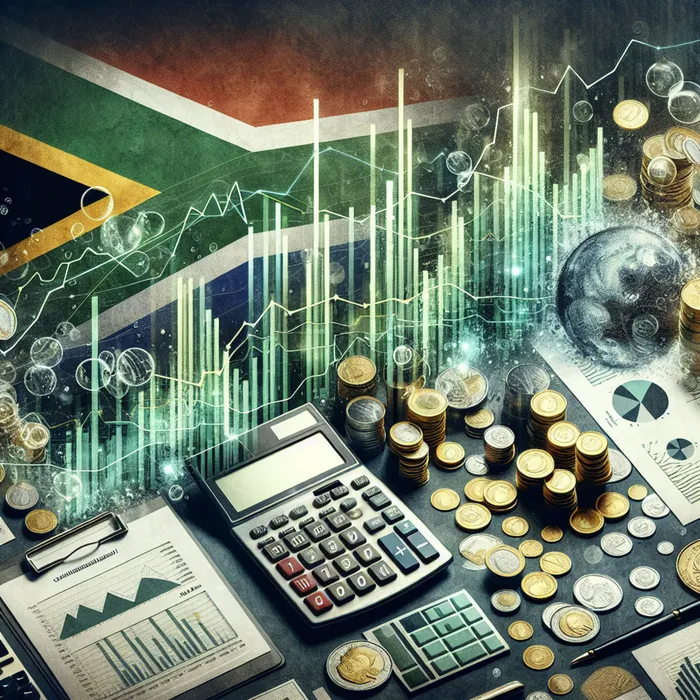South Africa’s unknown regressive tax
Opinion

South Africa, and pretty much all countries today, have a regressive tax, but it is a hidden one imposed by the government, so there is no outrage against it.
Image: AI Lab.
ACCORDING to reports from the SA Revenue Service (Sars), South Africa has a progressive tax system. This means that the more people make, the more they are taxed. The following table shows the various tax brackets, ranging from 18% to a monstrous 45%.
In South Africa, the more you earn, the more the government takes from you. There are many who argue that this is fair, that those who make more money should pay more. I am not one of these people. However, I doubt there’s any sane person who would argue for a regressive income tax, where the poor pay a higher percentage of their income to the government.
Calling for such a tax would cause an outrage such as South Africa has never seen; the poor would take to the streets in protest and might even turn on the rich. Any government that proposes such a ridiculous tax is sure to lose future elections.
What if I told you that South Africa does, in fact, have a regressive tax, one that puts a heavier burden on the lower class in society? South Africa, and pretty much all countries today, have a regressive tax, but it is a hidden one imposed by the government, so there is no outrage against it.
As a matter of fact, “progressive economists” who claim to stand for the poor cheer on this regressive tax and argue that it is required for the economy to grow.
The regressive tax is hidden, and so people don’t know they are paying it. To understand how this is so, one must first understand the effects of taxes.
Taxes come in many forms, but the effect is always the same: they leave you with less money. Whether it’s income tax, value-added tax (VAT), or fuel levies, they reduce how much you can spend, save, or invest.
There is one tax, however, that never appears on your payslip. It doesn’t go through Parliament, and it doesn’t need your vote. That tax is inflation, and in South Africa, just as with everywhere else, and is a regressive tax in its effects, it hits the poor hardest.
Most people think inflation just means prices are going up. But that’s only what we see. Inflation starts when more money is pumped into the economy. The more rands are created, the less each one is worth, and as money loses value, prices rise across the board.
Now here’s where it gets worse. When the government or the SA Reserve Bank (Sarb) adds new money into the system, it isn’t handed out equally (not that this would be a good thing). It goes first to banks, big businesses, and government-linked insiders. These groups get to spend the new money before prices rise. By the time the money reaches the rest of the population — especially salary earners, pensioners, and the poor — prices have already gone up. Their salaries stay the same, but now they buy far less.
This is known as the Cantillon Effect, and it’s exactly how inflation becomes a regressive tax. The rich benefit first and dodge the damage. The poor are hit last and hardest. Their food costs more. Transport costs more. Rent goes up. But their income doesn’t. Even if the number in their bank account stays the same, they are poorer in real terms.
No one debates this tax. No one votes for it. Yet everyone pays it, especially those at the bottom, and because it doesn’t show up as a line item or a deduction, people don’t realise it’s the government draining their wealth quietly, through money printing and credit expansion.
Inflation is not just an unfortunate side effect of economic policy. It is a feature of the current system. Every time the money supply grows, value is taken from those who earn last and given to those who receive first. This is wealth transfer from the poor to the rich, and it happens every day.
South Africans don’t need more money that buys less. They need stable money that holds its value. They need to be free from the hidden tax that punishes them without their consent. Until that happens, the poorest in South Africa will continue to pay the highest price.
If progressive activists take time off virtue signalling and fighting for things that not only don’t matter, but will undoubtedly make society worse, and focus on this regressive tax stealthily imposed on the people by the government, they might actually help the poor.
* Econ Bro is a Nigerian Austrolibertarian economist and an apprentice at the Mises Institute and an Associate of the Free Market Foundation.
** The views expressed here do reflect those of the Sunday Independent, IOL, or Independent Media.